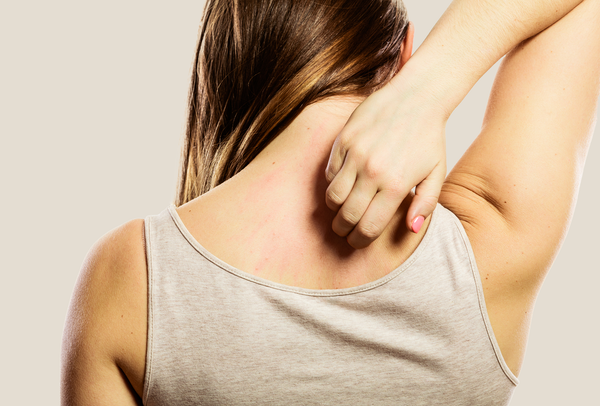It wasn’t all that long ago that we were blissfully unaware of the potential risks associated with some widely-used personal-care ingredients and products. (Hello, baby powder!) In recent years, scientific research, media coverage, and watchdog organizations like the Environmental Working Group (EWG) have all contributed to increased transparency on behalf of beauty companies as well as consumer knowledge.
More people than ever are taking a closer look at the ingredients that go in and on our bodies, and several ingredients have come under scrutiny. The main ones you’re likely keeping an eye out for include phthalates, dyes, mineral oil as well as other fossil fuel derivatives, and, of course, parabens. In turn, consumers are asking, “Why are parabens bad?” and persistent concerns about their safety has led many beauty companies to remove these ingredients from their products.
Parabens have been in the headlines in terms of ingredient safety for quite some time. However, it’s a fact that although these ingredients can be found in personal-care products sold in the United States, parabens are banned in the E.U. Let’s delve into the details…
What are parabens?
According to the U.S. FDA, “Parabens are a family of chemicals that are commonly used as preservatives in cosmetic products. Preservatives may be used in cosmetics to prevent the growth of harmful bacteria and mold, in order to protect both the products and consumers.” It’s important to note that although the U.S. FDA regulates “drug” ingredients like sunscreen filters, salicylic acid, benzoyl peroxide and others, most “cosmetic” ingredients (including preservatives like parabens) are not required to undergo any sort of review or receive formal approval.
Product labels often list more than one paraben in a product, and parabens are often used in combination with other types of preservatives to better protect against a broad range of microorganisms. The most common parabens you’ll see on ingredient lists are methylparaben, propylparaben, butylparaben, and ethylparaben.
The risks of parabens
When it comes to the potential health risks associated with parabens, the information you find can be dramatically different depending on the source you turn to. The U.S. FDA says, “FDA scientists continue to review published studies on the safety of parabens. At this time, we do not have information showing that parabens as they are used in cosmetics have an effect on human health.”
The E.U. has a different stance that supports its ban of parabens in personal-care products. It states, “The main concern regarding parabens in cosmetics is the potential of some of them to act like hormones in the body, in particular like estrogens, the female sex hormone.”
In addition to the disparity between the opinions of the U.S. and E.U. regarding the safety of parabens, there isn’t a scientific consensus (yet either). On one hand, this study has linked parabens to endocrine disruption and this research found a potential connection between parabens and breast cancer. On the flip side, this study did not find any potential health hazards associated with parabens.
But with this said, research has shown that parabens found in urine samples are associated with frequent use of leave-on personal-care products and that parabens are indeed absorbed by the skin. So basically (at least in the U.S.), the decision to eliminate parabens from your personal-care routine or continue to use them is yours.
Parabens and the skin
Many people mistakenly believe that parabens have a negative impact on the skin. In fact, parabens were named the “Non-Allergen of the Year” by the American Contact Dermatitis Association in 2019. Despite the myriad other concerns surrounding parabens, they pose very little risk of allergic skin reaction especially when compared to other preservatives.
SEEN’s stance on parabens
Our mission is to deliver gorgeous hair and healthy skin with unquestionably “clean” products and ingredients. Although SEEN is a skin-centric haircare brand, we also keep our customers’ overall health in mind when formulating our products. Although science has shown that parabens are not a common allergen or irritant for the skin, we decided to avoid them anyway.
The jury may still be out on the safety of parabens, but SEEN errs on the side of caution for the sake of our customers’ short- and long-term health.




